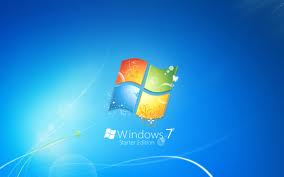Want to learn some cool features in Windows 7? Here is a list of ten
of the lesser known but really useful features of Windows 7 which I have
come along so far.
- Activate God Mode: If you play a lot of video
games, probably, you are familiar with the GodMode using which you can
access all the features like weapons, unlimited life, special moves,
tricks etc. This mode is usually used by developers for testing
purpose. Windows 7 has a hidden “GodMode” which lets users access all of
the operating systems settings and administrative functions from a
single place.
- Create a folder in your computer.
- Rename it as GodMode.{ED7BA470-8E54-465E-825C-99712043E01C}
- Problem Steps Recorder: This is a really useful
application of Windows 7 which can help reduce the length of calls to
the support desk by providing enough information to the IT pros. This
tool lets users to save the steps to cause a problem with taking
step-by-step screenshots of users action.
- Click on Start menu and type psr to open Problem steps Recorder.
- Click Start record to begin recording your issue. You can also add comments if you like.
- Click Stop Record when you are done.
- Switch to Projector: Windows 7 now provides a standard way to switch your display from one monitor to another, or a projector.
- Press Win+P or run displayswitch.exe and choose your preferred display.
- Sticky Notes: Even though this feature existed in
previous versions of Windows in one form or another, it’s much easier to
use in Windows 7. You can stick a note on your desktop for quick
reminders.
- Click on Start button and type “Sticky Notes” in the search box and click on Sticky Notes in the result list.
- Customize User Account Control (UAC): Do you want
to get notified when programs try to install new software or make
changes to your computer? You can control this setting through UAC.
- Open Control Panel and click on Action Center
- Click on Change User Account Control Settings link to open UAC window.
- User slider to select your desired level of notification and click OK. (By default, it is set to Never Notify option)
- Add Options in Send To Menu: Hold down the Shift
key while right clicking on a folder and select the Send To menu. You
will find a number of extra options in the context menu. You can
customize the menu to display the options you want even without holding
the Shift key.
- Open an explorer window and type shell:sendto in the address bar.
- Drag the shortcuts to your preferred folders into this folder.
- Disable Aero Snap feature: Aero Snap feature lets
you minimize, maximize or resize program windows by dragging and
dropping them to the screen corners, e.g. you can maximize a window by
dragging and dropping to the top of the screen. If you don’t find this
feature convenient, you can disable it.
- Open Control panel and click on Ease of Access Center icon.
- Click on the “Make it easier to focus on tasks” link.
- Now click on the “Prevent windows from being automatically arranged when moved to the edge of the screen” option and click Apply button.
- Undo unintentional Move/Delete/Rename/Copy operation: Have you ever accidentally deleted the wrong file, or duplicated files while trying to select hem with the mouse? These types of mistakes can be extremely frustrating, but there’s a really, really simple way to reverse them. All you have to do is use the Ctrl+Z keyboard shortcut or select Edit->Undo from the menu. This works in all version s of Windows.
- Burn images: Windows 7 finally introduces a feature
that other operating systems have had for years – the ability to burn
ISO images to CDs or DVDs. And it couldn’t be much easier to use.
- Just double-click the ISO image, choose the drive with the blank disc, click Burn and watch as your disc is created.
- AppLocker: AppLocker is a completely new feature
for Windows 7 that enables you to lock down certain applications for
users that you specify, using rules and properties to provide access
control for applications.
- Run GPEDIT.MSC and go to Computer Configuration ➜ Windows Settings.
- Highlight Security Settings and look for Application Control Policies. AppLocker is within this group.
